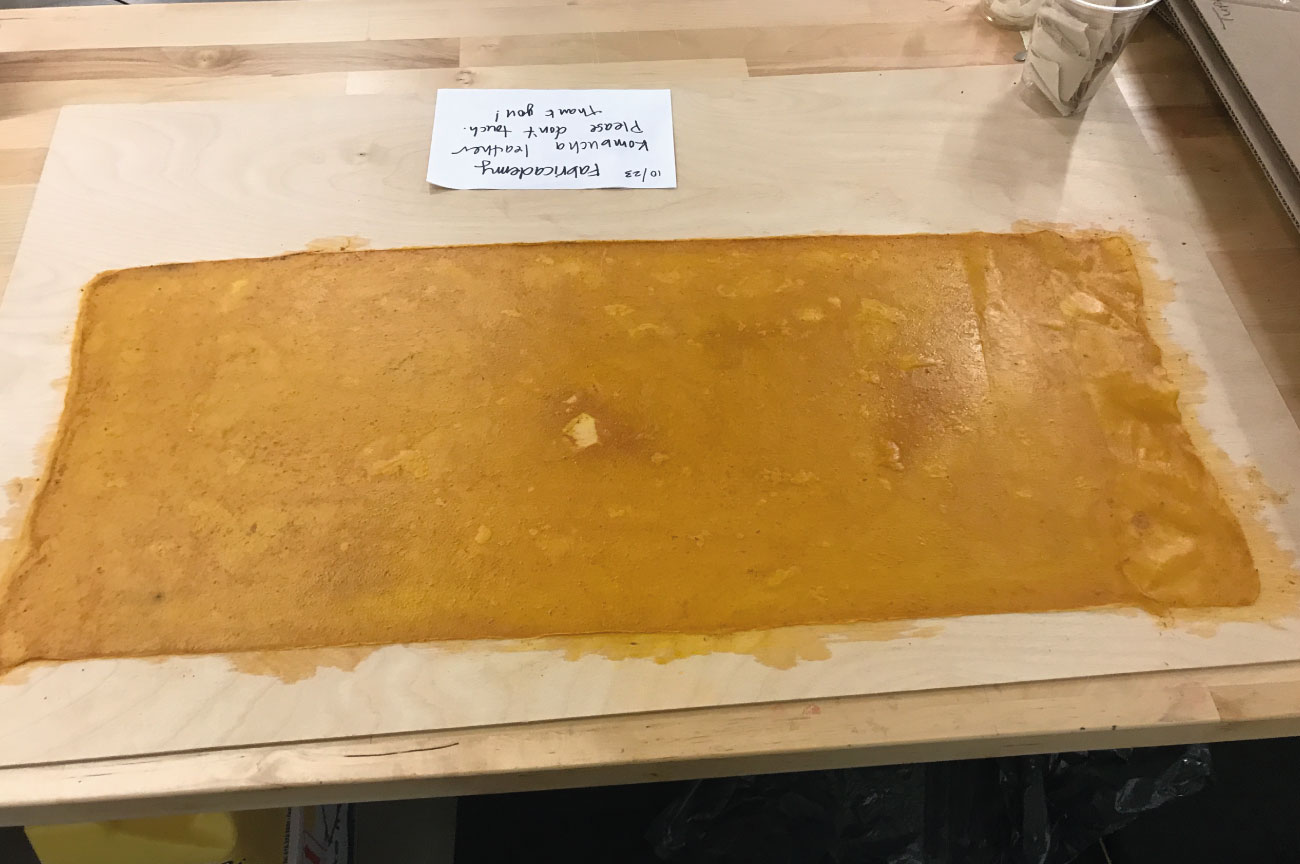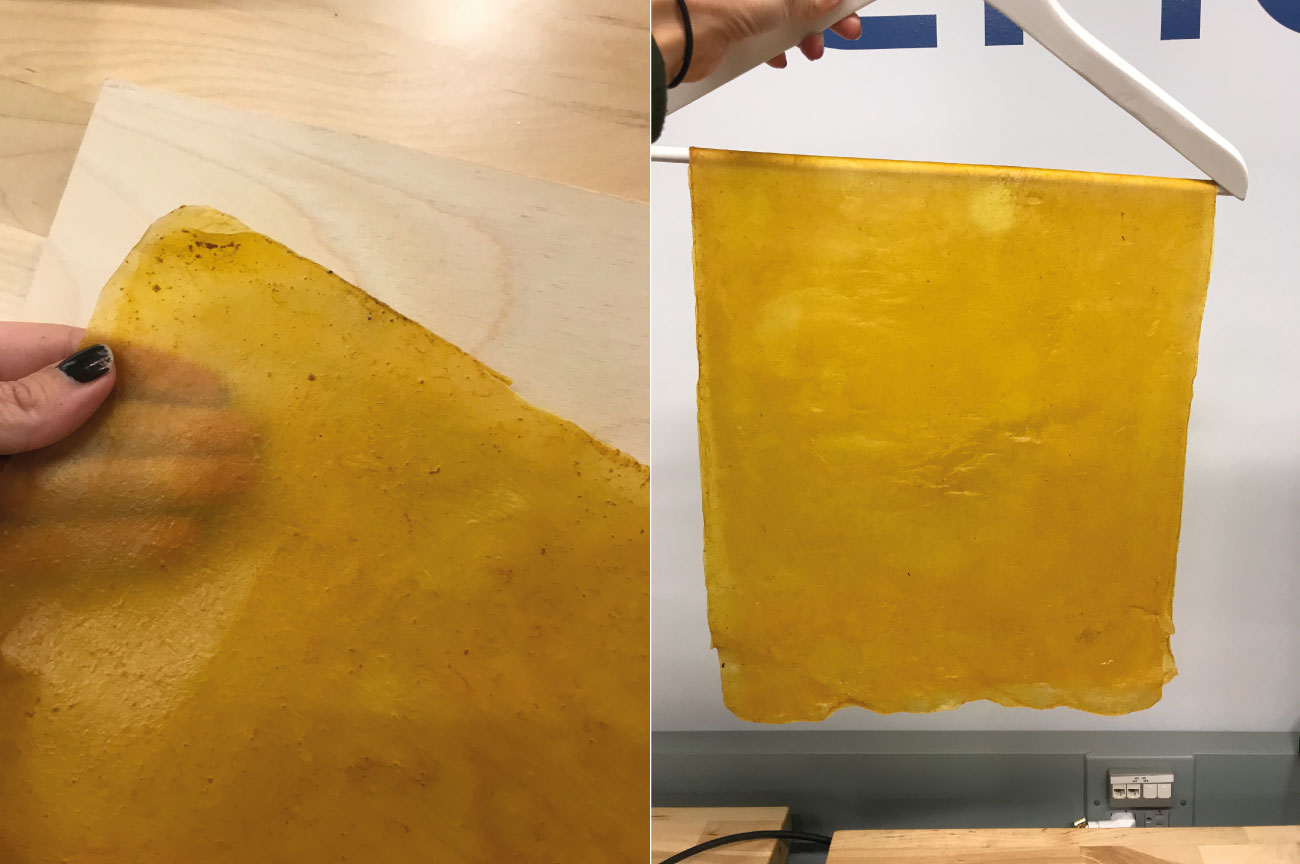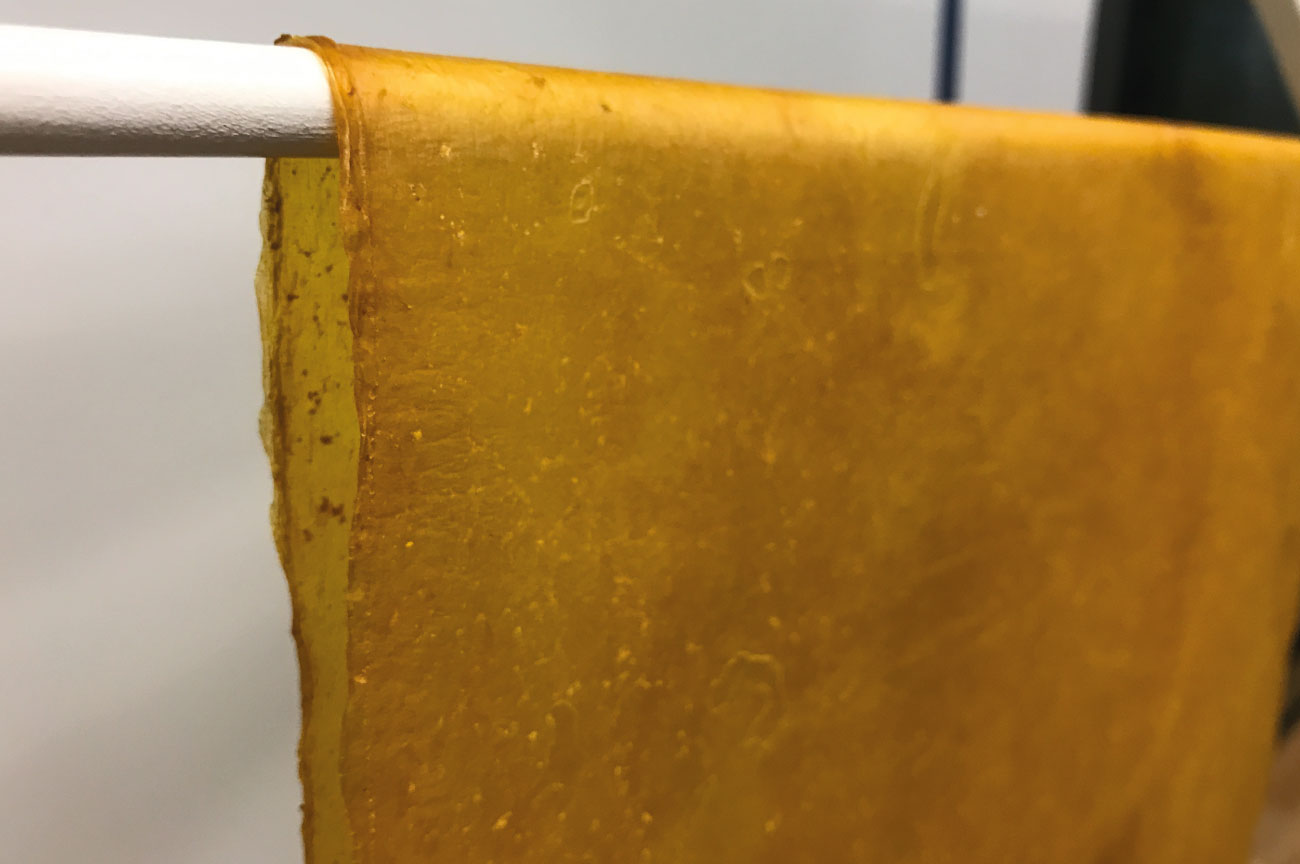4. Biofabricating Dyes and Materials#
BIODYES
Methodology: For experiment we wanted to gather a few data points for each dye material. In example for black bean we created a 3x4 array of different dye tests. The columns in the array were for the type of modifiers (neutral, vinegar, copper) and the rows were for the mordants (neutral, alum, iron, copper).
Fabric: - Musline - Cotton - Silk
Dye Materials: - Tumeric - Hibiscus - Annatto Sead - Black Beans - Maiz Morado - Onion Skin
Each dyeing recipe and process can be found in this week’s LECTURE SLIDES.



RESULTS
KOMBUCHA LEATHER
Step 1: Ingredients + The Set Up
- granulated sugar
- live kombucha* culture or SCOBY
- green or black tea bags stackable plastic bins
- a heat mat ( the brew does best at 80F)
- plastic stackable containers
- wooden boards for drying
- gloves
Step 2: The Tea Recipe
• Brew the tea • Makes one gallon (Scale up or down depending on the size of your container) • Supplies • 1 cup sugar • 6 bags tea • Kombucha Starter Culture ( SCOBY) • 1 cup starter liquid from the SCOBY (optional) • purified/bottled water ( tap water may contain chlorine that will kill the mother culture) • cloth cover • rubber band • Heat one gallon of water to boiling and remove from heat. • Add 1 cup sugar and 6 teabags. Stir, steep and let come to room temperature. Regular chlorinated tap water can be used for the boiled tea water. Boiling of the water evaporates the chlorine. Steep overnight.
Step 3: Fill Your Containers and Begin the Growing Process + Add Scooby
Step 4: Harvest


Step 5: Dry












